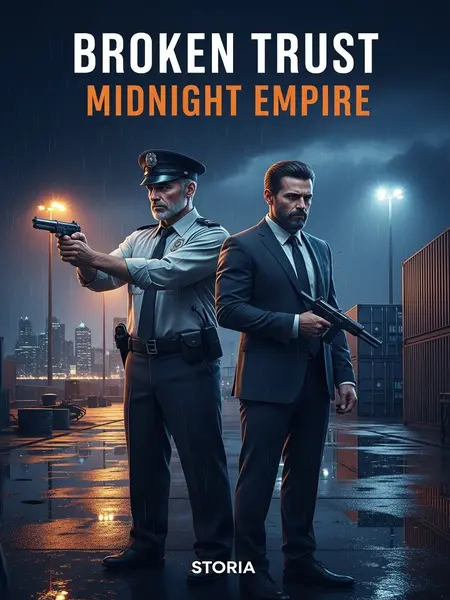Chapter 1: The Keys to the Case
After handling case after case of drug smuggling at the border, my bosses figured I should get my hands dirty—not just supervise, but actually dive into anti-drug smuggling ops at the checkpoints. I was all in. Truth be told, I’d been waiting for a shot like this. It’s not every day your boss hands you the keys to the action, right?
Honestly, I couldn’t resist the adrenaline rush that came with being right in the thick of things. I mean, who could? Supervising’s fine and all, but there’s nothing like being out there, getting your hands dirty, sleeves rolled up, feeling that electric tension as you crack open a suspicious crate or lock eyes with a jittery suspect. I’d been itching for a chance to get back in the trenches for a while now.
It was still autumn when we stumbled onto a case that was wild—not just because of how big it was, but because of the woman at the heart of it. She’d once been a boss, running drugs across state lines, and later flipped to become an undercover agent who helped us bring down a massive trafficking ring. She was the first female undercover agent I’d ever met in border enforcement work; inside, we called folks like her “special agents.” I remember thinking, damn, that’s rare—and I couldn’t help but be a little impressed.
I’ll never forget the first time I heard her name bounce around a briefing. The whole room seemed to sit up a little straighter, like someone had flipped a switch. It was the kind of respect you only see for legends, or people who’ve pulled off the impossible. In a world where men usually run the show, she stood out—partly for her role, but even more for her guts and grit. I remember thinking, this is someone you don’t forget.
September 16th that year, and the heat was still brutal in our neck of the woods. A shipment came through, supposedly just raw materials for herbal supplements, at our port in Silver Hollow. The goods were from Ohio, headed for Ukraine, total declared weight: about 3.5 tons. Since American herbal products almost never go to Eastern Europe, this shipment got flagged for a serious inspection. Pharmaceutical products almost always do—and I usually handle those myself.
Silver Hollow’s one of those border stretches where the heat just hangs around, even deep into fall. You can practically see the mirage rippling off the blacktop. Anything headed to Ukraine from Ohio, labeled as herbal supplements? Yeah, that sets off alarms. It just didn’t add up. You get a nose for these things after a while. Sometimes the air tastes like asphalt and suspicion.
My buddy Caleb Monroe and I climbed into the standard 20-foot container packed with the herbal stuff. Along with those goods, there was a batch of exported kids’ toys—which happens all the time—freight forwarders love to cram in as much as they can. The manifest ticked off items like “ginseng, valerian root, echinacea,” all packed in these white, hard, thick-walled plastic barrels—looked just like paint cans. Each one was labeled with contents and weight, sealed up tight, then wrapped in plastic so there wasn’t a whiff of herbs. The paperwork listed 1,200 small barrels, fixed on racks, all lined up and waiting for their ocean ride. Everything looked neat—almost too neat, if you ask me.
The air inside the container was stifling, thick and sticky—made every breath feel like you were swallowing hot syrup. Caleb—always the methodical one—started cross-checking labels. His brow was furrowed, all business. I ran my palm along the barrels, noticing how they were all the same—nothing out of place. Maybe too perfect. Sometimes that’s a clue in itself.
We picked three barrels, hauled them to the inspection area, and cracked them open. Inside: ginseng and echinacea, sealed up in plastic. The amounts all matched what was listed. Caleb said, “Looks like everything checks out,” but I caught the way he hesitated, like he was still chewing it over.
He shot me a look, ready to call it a day. But I’d seen too many clever tricks over the years to just let it slide. I caught a whiff of something off—not an actual smell, since the plastic wrap was airtight. It was more in the way the numbers lined up, just a little too perfectly. That’s the kind of thing that sets off warning bells for me.
Since it was headed to Eastern Europe—never the most stable place—and herbal supplement exports there are rare, I asked Caleb, “Has the H986 scanned the container?” The H986 is basically a giant version of the scanner at the airport—massive X-ray machine for cargo.
Caleb replied, “Already scanned. The scan looked normal.”
He tapped through images on his tablet. “Nothing out of the ordinary,” he said, but I could hear the question mark at the end of his sentence. Sometimes it’s what you don’t see that gets under your skin.
Still, something just felt off. I weighed the three barrels, and each was about a pound and a half heavier than the herbs and the barrel should be. When we took the herbs out, the white plastic barrels felt heavy—but not so much you’d notice unless you were really looking. We ran them through a small X-ray, and the bottom of each barrel showed a faint yellowish organic color—easy to miss if you weren’t paying close attention. My gut tightened. This was it.
I could feel my pulse pick up. You develop a sixth sense in this line of work. Right then, every hair on my neck was standing up. I glanced at Caleb, who was already pulling on his gloves.
“There’s a hidden compartment!” I said, right away.
You could feel the shift. The energy in the inspection room changed instantly. Caleb and the others gloved up, grabbed tools, and pried open the bottom of one barrel. Inside was a plastic bag, filled with a pale, crystalline powder. We didn’t know exactly what it was, but anything hidden that well? It wasn’t legal, that was for sure.
A hush fell as the first bag came out. Someone muttered, “Holy hell,” under their breath. We all knew what this meant: whatever was inside, it wasn’t supposed to be there, and it sure as hell wasn’t ginseng. My heart skipped a beat.
I had the supervision department file a report for manual inspection to the customs broker, then called Deputy Director Marsha Little from the anti-smuggling bureau. “We’ve found hidden items meant for export. They’re definitely chemicals, but we can’t ID them yet. There’s a lot of it—if every barrel’s like this, we’re talking half a ton. We need customs support.”
My voice sounded steady, but my heart was racing. I could hear Marsha’s pen scratching on the other end. In this line of work, you learn to keep your cool, but moments like this? They never get old.













